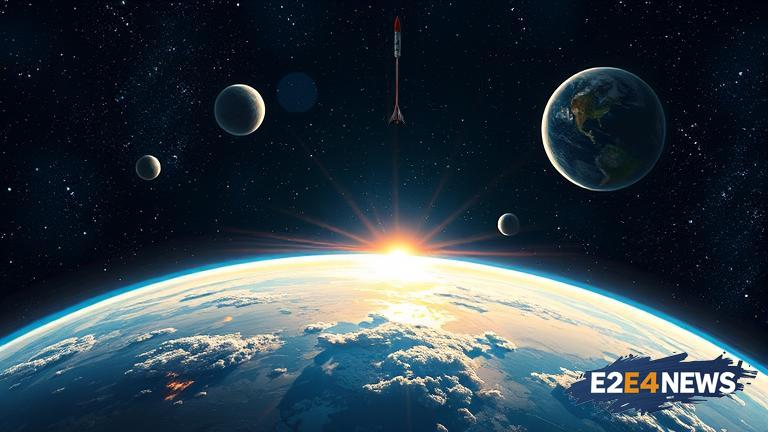Japan’s space agency, JAXA, has announced plans to send astronauts to the moon by 2025, with the goal of establishing a sustainable human presence on the lunar surface. This ambitious project is part of Japan’s broader strategy to become a major player in the global space industry. The country has already made significant strides in space technology, including the development of its own rocket, the H3, and the successful launch of several satellites. However, Japan still faces significant challenges in its pursuit of space exploration, including the need to develop more advanced technologies and secure funding for its projects. Despite these challenges, Japan remains committed to its goal of becoming a leader in the space industry, with plans to invest heavily in research and development. The country’s space agency has also announced plans to collaborate with other countries, including the United States and Europe, on future space missions. Japan’s ambitions in space exploration are not limited to the moon, with plans to send astronauts to Mars and beyond in the coming decades. The country’s space program has already achieved several notable successes, including the launch of the Akatsuki spacecraft, which has been orbiting Venus since 2015. Japan has also developed several advanced technologies, including a new type of rocket engine and a sophisticated navigation system. However, the country still lags behind other major space-faring nations, including the United States and China, in terms of its overall capabilities and funding. To address this gap, Japan’s government has announced plans to increase funding for the space program, with a focus on developing new technologies and collaborating with other countries. The country’s space agency has also established several partnerships with private companies, including SpaceX and Blue Origin, to develop new technologies and services. Despite the challenges it faces, Japan remains committed to its goal of becoming a major player in the global space industry, with a focus on developing sustainable and innovative technologies. The country’s space program has already inspired a new generation of scientists and engineers, with many young people expressing interest in pursuing careers in the field. Japan’s ambitions in space exploration are also driven by a desire to contribute to the global community, with a focus on using space technology to address pressing issues such as climate change and sustainable development. The country’s space agency has announced plans to launch several new satellites in the coming years, including a advanced weather satellite and a satellite designed to study the Earth’s climate. Japan has also developed several advanced technologies, including a new type of solar panel and a sophisticated system for recycling water in space. The country’s space program has also inspired several spin-off technologies, including advanced materials and robotics systems. Overall, Japan’s new era of space exploration is marked by ambition, innovation, and a commitment to sustainability, with a focus on developing new technologies and collaborating with other countries to achieve its goals. The country’s space agency has announced plans to establish a new research center, dedicated to the development of advanced space technologies, and has also established several partnerships with universities and research institutions. Japan’s government has also announced plans to establish a new space policy, which will outline the country’s goals and objectives in the field of space exploration. The country’s space program has already achieved several notable successes, and is poised to make significant contributions to the global space industry in the coming years.
